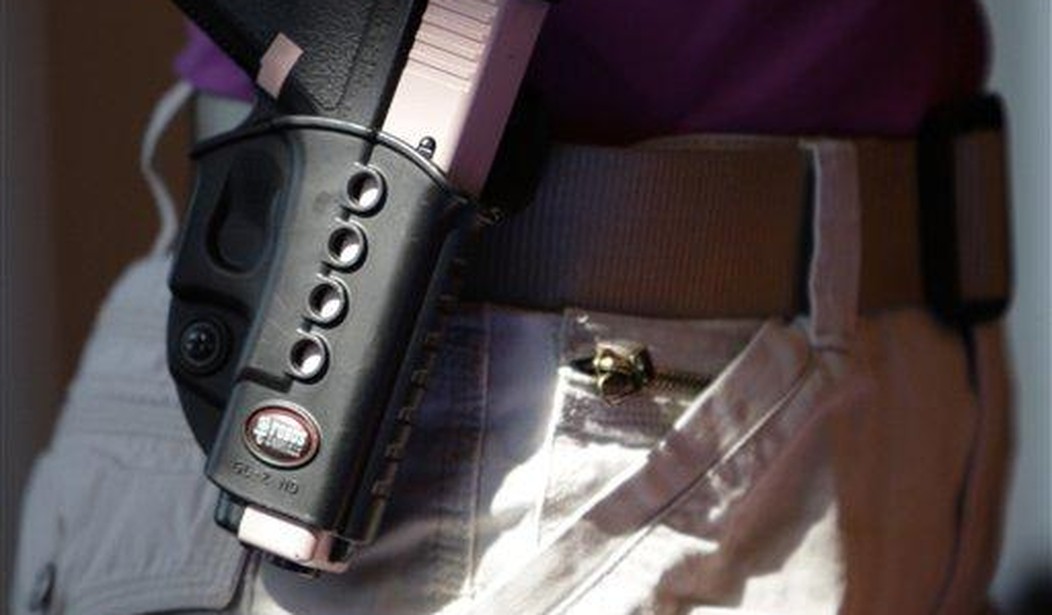I’ll state right up front that I doubt that’s the case, and I’m sure if you asked the politicians and stakeholders who crafted the “yellow flag” law back in 2019 they’d scoff at the idea that their legislation was intentionally crafted with a very big flaw, but I can’t help but wonder given the recent findings of the state’s Deadly Force Review Panel. The board, which is required to annually review all officer-involved shootings in the state, says that Maine’s version of an Extreme Risk Protection Order isn’t being utilized by police; not because they’re unaware of the law or have concerns about its constitutionality, but because the law is too difficult to implement for many jurisdictions.
It creates a process for police to temporarily take guns away from people who are in danger of hurting themselves or others. Unlike other states with similar laws, Maine requires a medical practitioner to sign off on the request. That provision was key to broad legislative support for the bill in 2019 and has been touted by Maine politicians, but police have said they are often unable to use the law because the state doesn’t have a system to conduct evaluations remotely. State officials said last year that they were working on a telehealth option.
The panel found that 79% of the cases reviewed involved police shooting a person with a firearm.
“The Panel understands that the protection of substantial threat statute is not being used on a regular and responsive basis often because of the lack of an available medical practitioner to complete an assessment,” the report says. “The Panel urges the provision of expanded education and information regarding the use of protective custody and collaboration with behavioral health providers, and the use of telehealth assessment options for weapons restriction assessments available to law enforcement, especially in rural areas.”
Maine is a very rural state, and finding a psychiatrist or psychologist who can made a medical finding that someone is in crisis and poses a risk to themselves or others can be a nearly impossible process for departments hours away from Portland or Bangor, which is probably why lawmakers expanded the pool of health care workers who can conduct the assessment to “medical practicioners”; a term that includes not only any physician and licensed clinical psychologist, but certified psychiatric clinical nurse specialists and even physician’s assistants and nurse practitioners.
Beyond that logistical concern, however, many of those medical practitioners say they believe they would be safer performing those assessments remotely, and as of 2021 many healthcare providers in the state were choosing not to do assessments at all.
Jeff Austin, a lobbyist for the Maine Hospital Association, said the law specifically allows the evaluation to be conducted at an alternative site to address that concern about safety. He expected the state to set up a system to do them remotely, but that hasn’t happened. So the state’s three biggest hospital systems – MaineHealth, Central Maine Healthcare and Northern Light Health – are not participating.
“I think our members have a simple request because that risk is foreseeable and because there is a practical way to mitigate that risk,” Austin said. “What are we waiting for?”
David Trahan, executive director of the Sportsman’s Alliance of Maine, was involved in negotiating the requirement for the medical evaluation. He also was confused about why those aren’t happening, either as part of existing processes in emergency rooms or through telemedicine.
“I’m perplexed as to why this can’t get resolved, because hospitals are already doing assessments of patients in protective custody to determine whether they’re to be committed,” he said.
A spokeswoman for Gov. Janet Mills said she is aware of these concerns and plans to meet with the hospital association soon.
“This law is the most meaningful public safety legislation enacted in recent years and results from extensive discussions with public health experts, domestic violence advocates, members of law enforcement, sportsmen and women, the Judicial Department, and others,” spokeswoman Lindsay Crete wrote in an email. “The Administration is hopeful that the Maine Hospital Association will work with law enforcement and others to fully implement the law, and we will continue to work with them to that end.”
It’s been almost two years and nothing has changed in the interim. So what gives?
Maybe lawmakers were just looking to “do something” back in 2019, and put in place a law that they knew would be difficult to utilize but still allowed them to claim they had taken a substantive step towards addressing “gun violence.” It could be that the legislature is comprised of incompetent boobs who can’t figure out how to get medical practitioners to start doing the mental assessments or make remote assessments a viable possibility. I suppose that Extreme Risk Protection Orders could have become less important to the Democratic majority since 2019, so there’s been no pressing need or political desire to revisit the issue, though that doesn’t seem likely to me.
It could also be the case that at least some of those lawmakers who voted for a “yellow flag” law were hoping it wouldn’t work so they’d have an excuse to lower the standards used to confiscate firearms under an Extreme Risk Protection Order. The gun control group Gun Safety Alliance of Maine certainly isn’t happy with the current standard. On its website, the group calls a “red flag” law one of its legislative priorities, describing the “yellow flag” statute as “more difficult to implement and less effective” than it’s red flag counterpart, so there’s definitely an appetite among anti-gun groups to undo Maine’s law and replace it with one more to their liking.
The longer the state legislature dawdles in addressing the issues with mental health assessments, the louder the calls from anti-gun groups to remove those assessments altogether. I have issues with ERPOs in general, but if Maine removes the mental health component of its law it will be a huge step in the wrong direction. Outright repeal would be the best option, but given the Democratic majorities in the legislature that seems unlikely to happen, and I’m concerned that going forward a rarely used gun control law will be amended to make it much easier to strip individuals of their Second Amendment rights without even the modest due process protections currently in place. The status quo isn’t great, but if the current issues aren’t isn’t addressed what’s likely to come next is going to be much worse.









Join the conversation as a VIP Member